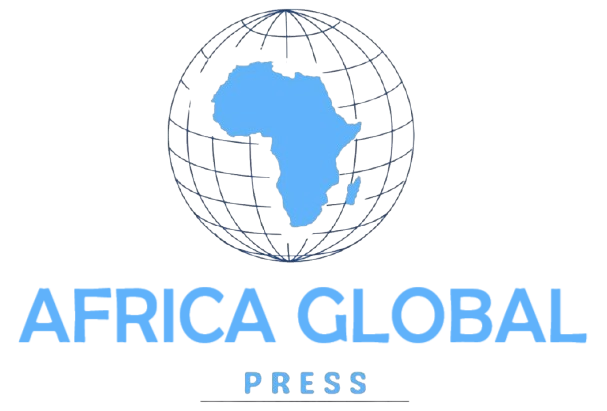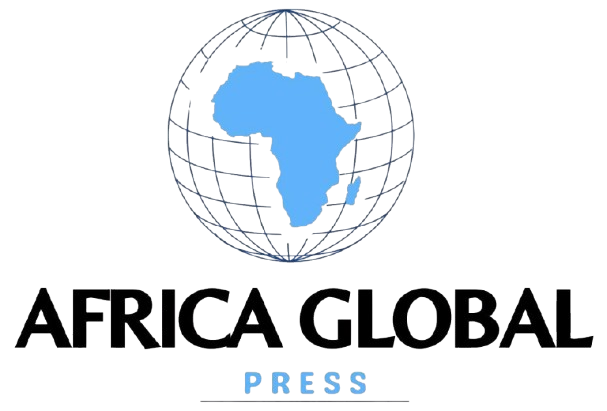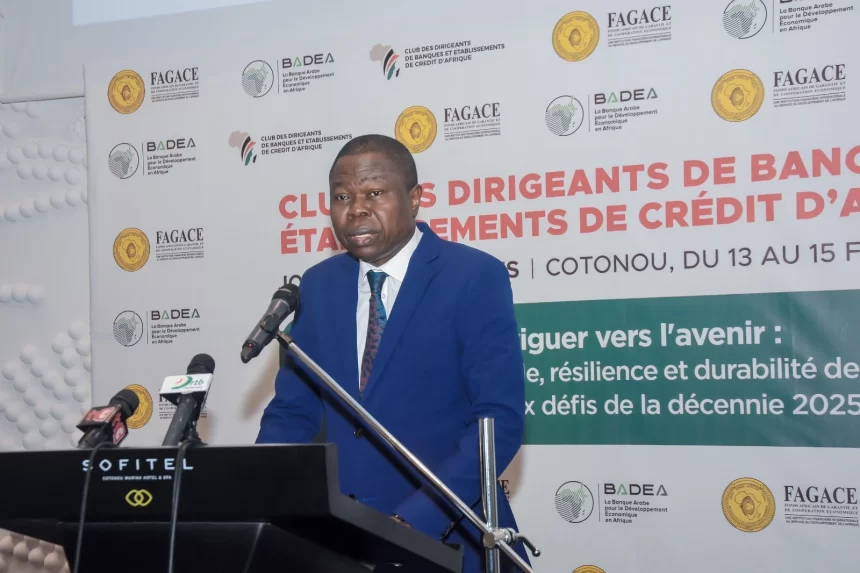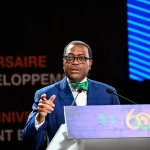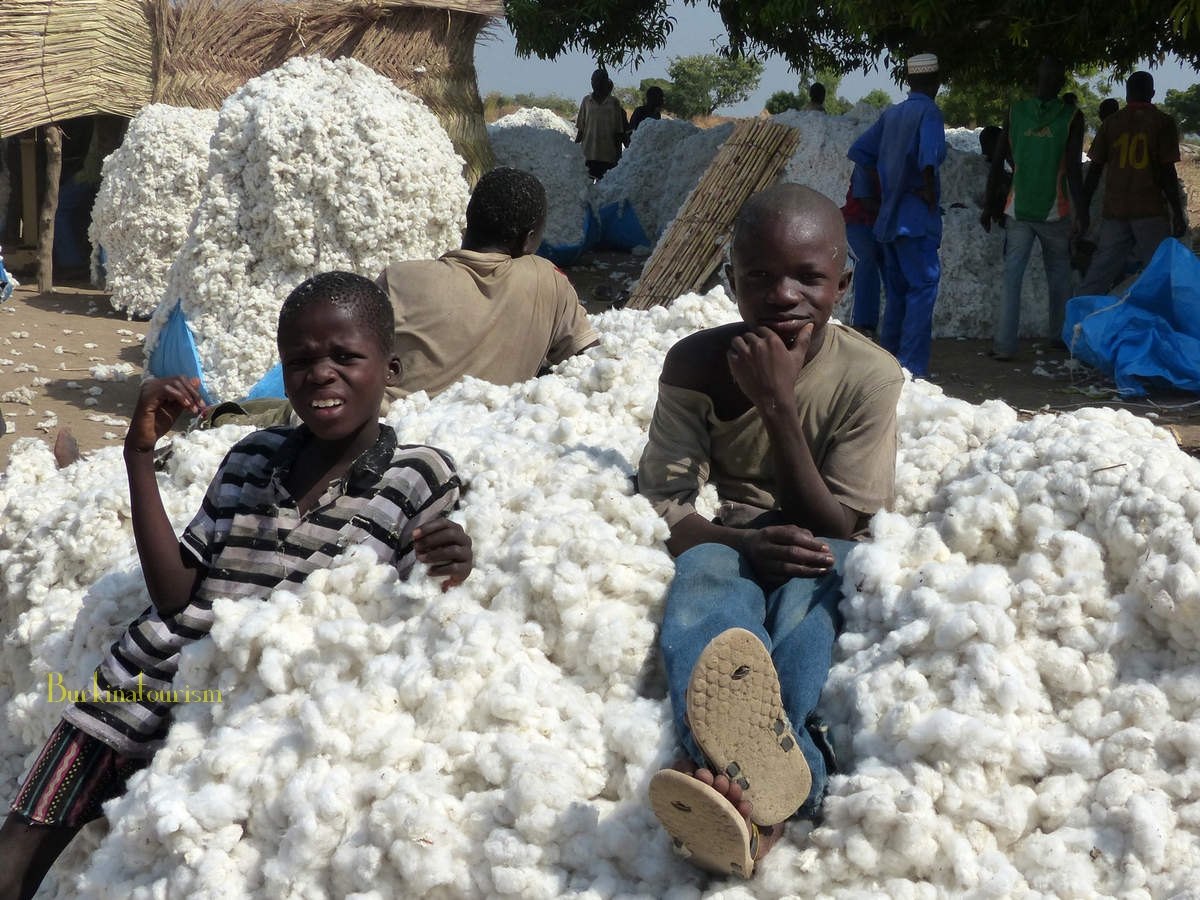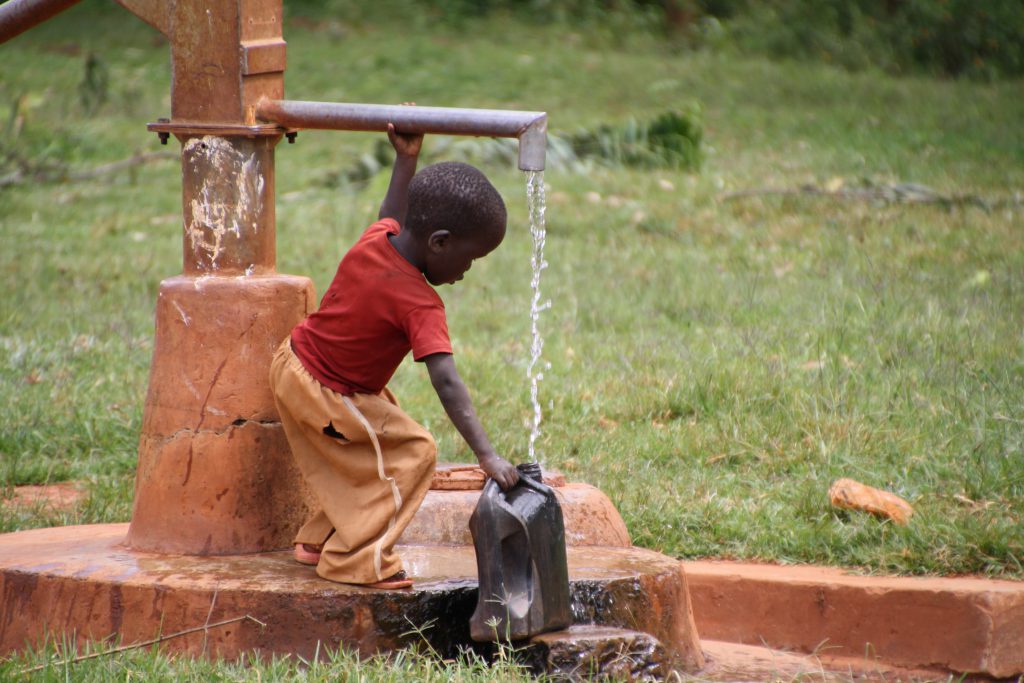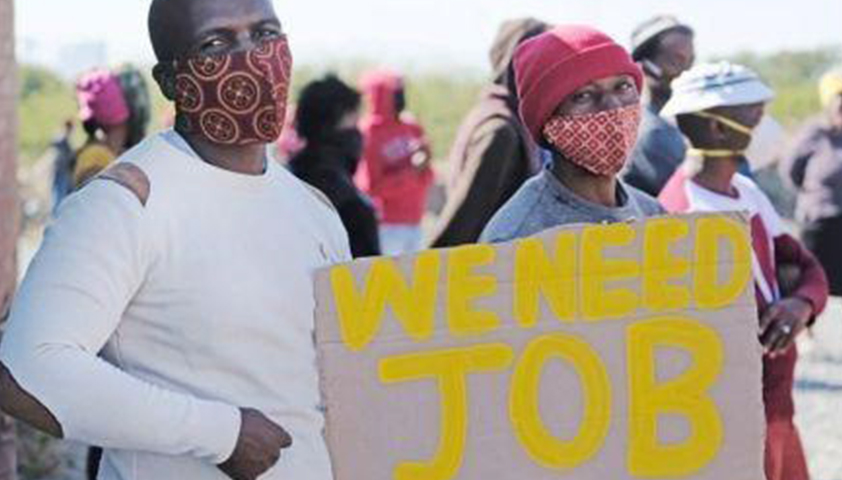Granted a second term at the head of Fagace for having revealed it better than ever before during its existence, Dr. Nguéto Tiraïna Yambaye, the current director general, humbly accepted the offer, which he described as a “renewed mark of confidence” and is also working on developing a new strategic plan for 2026-2030. However, in an interview with Press Africa in Cotonou in early March, he maintained that he was not “a careerist,” and alluded to his succession as head of the executive of the said Fund.
By Comlan Anicet TIDJO
Read the full interview
Revealed forever over the past four years by a well-born soul, affectionately referred to as the Father of Modern Fagace, the African Economic Cooperation and Guarantee Fund (ACEF) today combines modernization, innovation, notoriety, expansion, and financial stability. An interview assessing the 2021-2025 strategic plan and a harbinger of the new 2026-2030 plan.
PRESS AFRICA: Mr. Director, you need no introduction for having brought the Fagace to light. What major reforms, particularly institutional, cooperation, restructuring, and standards-related, have you implemented since your arrival at the helm of the Fund?
Nguéto Tiraïna Yambaye: Thank you for this opportunity to talk about this wonderful institution, the African Guarantee and Economic Cooperation Fund, created on February 10, 1977, in Kigali, Rwanda. Fagace is a financial institution created by the heads of state of OCAM to complete the financial ecosystem to enable African populations, African banks, and project leaders to have secure access to credit and loans. Fagace is therefore the missing link. I took office on June 1, 2020, in the midst of COVID-19, and we have tried to work rigorously and responsibly with all my staff to meet the challenge. We have developed a strategic plan that guides our vision for the next five years and is based on the modernization of the Institution.
This strategic plan has enabled us to reform the institution to bring it up to international standards; to strengthen cooperation and partnership with partner banks, similar institutions, and sister institutions, in order to develop synergy of action and pool resources to achieve Africa’s underfinancing objective. The challenge is to complete the financial ecosystem so that Africa is truly financed. Africa is a potentially rich continent, but it is underfinanced. Based on macroeconomic and financial indicators, the banking rate in African economies hovers around 15%. That’s for the most efficient ones, but this banking rate ranges from 2%, or even less.
As a multilateral financing and development institution, Fagace must assume its responsibilities and act to support authorities, states, the banking sector, and financial markets, and attract external financing through the private and banking sectors. We have therefore supported and developed this partnership at the global level.
The results you know indicate that Fagace is a trusted certification. We have signed cooperation agreements with multilateral institutions, rated “AAA” globally, which allow us to “reguarantee” and reinsure ourselves when we operate in fairly risky sectors. The new Fagace, through innovations I have implemented, is based on strengthening governance, rigor, responsibility, and accountability at all levels. For a good trusted certification, Fagace must inspire confidence. We are now rated “AA” by international rating agencies that recognize our efforts, internationally by Moody’s. We also work with all central banks and financial market regulators that evaluate us. Several institutions evaluate us, and the International Association of Financial and Development Institutions evaluates us. And we ourselves are evaluated by our partners. We show our credentials! In strengthening governance, we have created the Independent Evaluation Office, which is an autonomous, independent body, whose members come from the four central banks of the monetary zones.
Today at Fagace, governance requires everyone, as far as they are concerned, to be rigorous and accountable. With this vision in mind, we have also created a think tank, the Fagace Institute, whose mission is to think first before deciding, because if we want to be serious, we don’t act before thinking. The Institute thinks for the Director General and for the authorities, to allow us to anticipate certain actions. The Fagace Institute is managing to popularize the profession of financial guarantee, which is not yet taught in universities and colleges. We are a reformer and we work in innovation to better serve the economies of the Member States.
At what rate do you estimate the level of execution of your 2021-2025 strategic plan?
The strategic plan we developed within ourselves, which has become Fagace’s guiding compass for the period 2021-2025, is very ambitious. After four years of implementation, we have exceeded our objectives by more than 300%. The secret lies in our leadership management because, since the plan was developed by ourselves; the CEO and his colleagues, the staff felt responsible for the destiny of this strategic plan. It is their strategic plan. We must create the right conditions for staff support, and therefore, we have valued the profession of Fagace’s managers; the profession of guarantee by putting staff at ease. In doing so, we have achieved exceptional results. For almost five years, Fagace has delivered high-quality results to the satisfaction of the members of the Board of Governors and the Board of Directors. We have far exceeded the objectives we set for ourselves by more than 300%.
Would you like to brief us on the impacts of these results?
Indeed, when the results are positive, the impact is there! Today, the impact on the lives and working environment of staff has improved internally, as has the impact on economic operators and banks. Today, banks trust us! We work simply, but intelligently with the financial and banking markets. With the support of central banks, we are working to make the Institution useful. In 2020, the level of guarantees was 400 billion CFA francs, and as of June 30, 2024, we are at more than 1,300 billion CFA francs. The Institution has become attractive, and we receive many requests, but we do not only act on financial support in terms of guarantees. We participate as a technical assistant, as a capacity-building institution, as an institute that contributes to project structuring.
Here at Fagace, our leitmotif is that reflection must precede decisions and actions. We also conduct peer self-evaluation; that is, partners evaluate us to tell us whether the path we have taken is good or bad. Today, we were reflecting on financing rural entrepreneurs and startups. Africa is essentially an agricultural economy at 70%. If the agricultural and therefore rural economy is financed, we should not talk about famine in Africa and food self-sufficiency in Africa must be a given. Africa can even export food instead of importing it. In our philosophy, it is absolutely essential to finance the agricultural economy, which is a real economy through livestock farming, agriculture, etc. It is in the agricultural economy that there is great potential for wealth and job creation. Many young graduates from top schools are returning and want to start businesses, and we support them through the different types of guarantees that we put in place; including individual guarantees and portfolio guarantees to allow young people to have a bank account and access credit to finance the investments for their projects.
How do you see the future of Fagace in terms of projections?
Fagace is today a credible and solid institution, and my mission as Director General is to leave a positive legacy to those who will replace me. The secret to success is leadership and good governance. We are working towards this goal, and the Fagace Council of Ministers and the Board of Directors are aware that we must meet the challenge by modernizing the institution to international standards. Let the rules of the game be clear. For those who love football, if the rules of the game are not clear, there will be no football match. All stakeholders must show their credentials. Only then will we leave a Fagace with a future. The future of Fagace is promising. The new strategy we are implementing—we have already launched the “Young Professional Program.” We are rejuvenating the Fagace staff so that brilliant young people graduating from universities and prestigious schools can join this African family of experts and specialists who believe in the future of the continent and who make Fagace command the esteem and admiration of other institutions. We propose to create offices in member countries. We currently have three sub-regional representations. There is the sub-regional representation of Central Africa in the CEMAC zone in Douala, Cameroon; the sub-regional representation of East Africa in Rwanda; and the sub-regional representation of West Africa, which is in Dakar, Senegal. But, in each state, we will create offices to provide local support because the guarantee business is not very well known. Fagace should support the authorities, banks, chambers of commerce, chambers of agriculture, and project leaders so that any project leader who has good ideas can transform these ideas and support them with financing.
The paradox in Africa is that people ask themselves the question: have the banks succeeded or failed? Because in other countries, banks finance creation and ideas, but here in Africa, and particularly in French-speaking Africa, banks only finance development. We only finance what exists. We want to break with this because it’s not the quantity of money that will make a success, but the quality of the ideas and the competence of the actors. Fagace has a good future, and I believe in humble conscience that I will leave a good legacy to the future generation for the prosperity of Africa.
Your Excellency, the member countries have renewed their confidence in you. In what frame of mind are you approaching this second term?
The Board of Governors renewed my mandate early in light of past results, but it is with humility that I begin this second term. I tell myself that I am not a careerist! I want to be useful to the continent: my country is Africa and Chad is my village! I have served the continent in all capacities and it was with pleasure that I accepted the position of Director General of Fagace and this second term entrusted to me is a mark of confidence. It is therefore up to me to continue to modernize the Institution; to bring it up to international standards; to work above all to restructure it and train human resources. We must be competitive at the global level.
We are not self-conscious, and my colleagues are fortunate to have a Director General with extensive experience; proven expertise at the global level, and who, through his commitment to his continent, has come back down to earth to be more useful. The Board of Governors has renewed my mandate; I must develop a new strategic plan for the period 2026-2030. We are already working on it, and we will do better than the first strategic plan. So, the second strategic plan for the period 2026-2030 is underway with the same team and the contribution of new states that are in the process of joining. Our capital has increased from 300 billion to 500 billion CFA francs. We have several English-speaking and Portuguese-speaking states that will join, and non-state institutions that are also interested in what we are doing. Our role is to continue supporting the continent and supporting accelerated development financing.
You couldn’t achieve these feats without a secret?
The secret is that we took our work seriously. The new guidelines given to me during my recruitment were rigorously implemented. This strategic plan focuses on strengthening the institution and also focuses on its modernization. We have met the challenge entrusted to us by the Board of Governors to become a modern pan-African institution aligned with international standards. The results of the modernization we have achieved are convincing. For the past five years, Fagace has been making positive and growing profits. The rating agencies and central banks that evaluate us every six months through the Independent Evaluation Office are satisfied and encourage us to do better. We cannot assume that we have already succeeded in modernizing Fagace. There are still many challenges to enable potentially very wealthy African economies to realize their potential by providing substantial financing and playing our role in the financing and development mechanism of the African continent. If some people in public opinion think that I am the father of modern Fagace, they are somewhat right and it is because I have applied the governors’ guidelines so that Fagace becomes a modern and innovative institution serving the accelerated financing of African economies.
What will be the essence of the next strategic plan?
The current strategic plan will be completed in 2025. The Fagace teams will get to work to prepare a new strategic plan, still focused on the modernization and efficiency of the institution. The next strategic plan will be a continuation of the current plan, which was already a success. But, I told my colleagues, the challenge is enormous. We must be a useful institution, not only for our staff, but for the entire continent. We anticipate new memberships from other states, about ten. There are also non-state institutions that want to join Fagace. All of this must be completed by 2025 and integrated into the new 2026-2030 vision.
What about governance mode?
Fagace must be a model! Fagace must be an example! As a general manager, I must govern by example, and the staff’s support is reassuring. My management is participatory; that is, the work must be shared. As a general manager, I don’t work alone in my little corner. We share the work; we share the joys, and we also share the difficulties together. Fagace’s management framework has been strengthened so that participatory management is the rule at Fagace.
You have received a flurry of honorary distinctions; are they a source of motivation?
These distinctions and decorations encourage me to be an exemplary leader. The challenge is the reputation of the institution I represent and lead. These honorary distinctions and decorations further galvanize me.
What is your final word?
I would first like to sincerely thank the entire Fagace staff for their commitment, the new social contract, and their sacrifice. My staff works an average of 60 hours a week without asking for anything in return. This means that it is their Fagace first and foremost; they are personal and must be exemplary. Our motto is also strengthening governance. I would also like to thank our partners in the national and international press in the countries that support us. It is thanks to the press that Fagace continues to be known in the Member States and globally. Today, Fagace’s commitment is to work in both languages: English and French. This is an innovation that allows us to get our message across the world. We have partners at the global, African, and national levels who support us. We are also not only a financing institution, but also a consulting institution, and we provide our technical assistance and expertise. The financial engineering demonstrated by Fagace is put at the service of states, banks, and the private sector. Today, building the capacity of our partners is also part of our responsibilities. We are doing this, and we believe that by 2025, our partners will regularly provide us with feedback so that we can be of service to them. Fagace is at the service of states and economies, not the other way around. We are doing our bit so that tomorrow, the new generation that will take over Fagace will be able to continue what we have sown.
